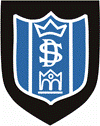St. David’s Primary School complies with Additional Support for Learning (Scotland) Act 2004 as amended by the Additional Support for Learning (Scotland) Act 2009 and the Additional Support for Learning: Statutory Guidance 2017
North Lanarkshire Council’s policy is contained within “Support for Learning Policy into Practice 2” a copy of which is available in the School. The school has a Support for Learning Policy, available from the school on request, which is consistent with North Lanarkshire Council guidelines. St. David’s has a robust system in place for Additional Support Needs using the Staged Intervention Approach.
Children who require additional help with their learning are well supported and are closely monitored. The principal teacher takes responsibility for Support for Learning and liaises closely with the Network Support Facility, Early Years worker, Educational Psychologist and staff from relevant agencies.
Children with special difficulties such as speech, sight or hearing problems are given extra support to help them keep up with their work. A Personal Learning Plan is set up for individual pupils as required.
A GIRFMe Plan can be put in place to ensure the needs of children with individual needs can be met throughout the child’s education.
- Universal – Internal support, where education staff identify that a child or young person needs support or planning from within the school or early years establishment.
- Additional – External support from within learning and leisure services, where it is identified that the child or young person requires support or planning from beyond the school or early years setting but within educational services.
- Intensive – External support provided on a multi-agency basis, where the child or young person’s needs are identified as requiring support or planning from multi agency services and these support needs are likely to last for more than one year.
The school offers a range of staged interventions for pupils, e.g, ‘Read, Write Inc’, ‘Better Reading’, ‘Lexion’, ‘Reading Recovery’, ‘Rainbow Reading’ and numeracy support groups.
Pupils who require support at levels 3 and 4 have GIRFMe plans which are regularly reviewed at meetings with parents, teachers, support staff and the Educational Psychologist.
Sensory Support staff visit pupils at school and when required N.L.C. provides support from the behavioural support unit.
Looked After Children i.e. children who are cared for directly or whose care is supervised by the local authority are deemed to have Additional Support Needs unless assessment determines otherwise. The Head Teacher is responsible for the Education and welfare of looked after children.
Parents and young people can request an assessment to establish whether a child or young person has additional needs or requires a Co-ordinated Support Plan.
Parents and pupils are an essential part of the assessment, planning and review processes and your views will be actively sought. Parents and young people can request of the authority to establish whether a child has additional support needs. They can also request an assessment at any time.
English as an Additional Language
Provision is available for pupils with English as an additional language. This is now in place through our cluster support. You can find out more about supporting your child with English as an additional language by clicking on the following link. Education Scotland English as Additional Language
Planning
Getting it Right for Me plans (GIRFMe) enable staff to plan effectively for children and young people when interventions are required to support their learning and improve outcomes. Parents/carers and pupils are an essential part of the assessment: planning and review processes and their views will be actively sought.
Some children and young people may require significant support from education and at least one other agency, such as health, social work, and/or voluntary agency to help them meet their learning targets. Where this support requires a high level of co-ordination the opening of a Co-ordination Support Plan (CSP) may be considered.
A CSP may be initiated by the school or another agency. Parents/carers and young people can, if they wish, request that a CSP be considered and would be involved in the process. Parents will receive letters from Education Authority throughout the CSP process. Parents and young people will be invited to take part in multi-agency meetings and their views will be recorded in the plan.
Where more intensive support for a child or young person needs to be planned for, usually when a number of agencies are involved in supporting their wellbeing then a Child’s Plan may be developed. The plan will tell you what actions need to be taken and who will help with each action. It will usually be someone called a ‘Lead Professional’ who will have the job of making sure that the actions outlined in the plan take place and things get better for the child or young person.
GIRFEC
The Scottish Government introduced ‘Getting it right for every child’ as the vehicle for achieving their social policy framework
Getting it right for every child is a national approach which is relevant to each and every child in Scotland and affects every practitioner working in children and family services in the public and voluntary sectors. All staff within St David’s Primary School are aware of their individual responsibilities within GIRFEC towards every individual child.
The Getting it right for every child toolkit is designed to support professionals in Lanarkshire with a responsibility for implementing any aspect of the programme. The toolkit may also be of interest to other areas in Scotland. It includes a combination of written reports, exemplars, graphic images, animations, assessment paperwork and digital resources which are the result of a three year development programme.
The resource is broken down into:
- General Resources
- Culture Change Resources
- Systems Change Resources
- Practice Change Resources
This resource is available electronically through the Getting it right for every child website.

